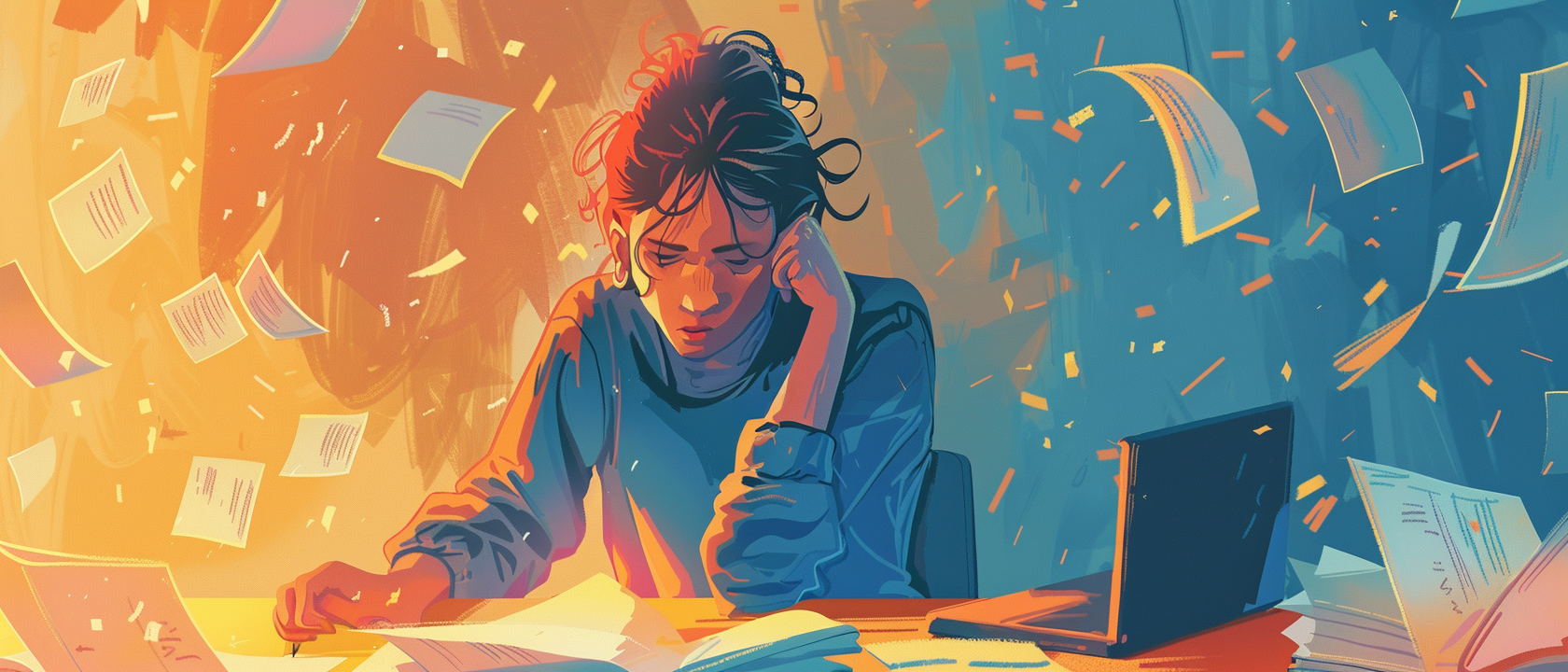Writer’s block is a common problem faced by students, professional writers, and even seasoned authors. It can be incredibly frustrating and demoralising, especially when you’re up against a deadline for an essay, a dissertation chapter, or a creative project. But what is writer’s block, what causes it, and how can you overcome it? In this blog post, we’ll explore the answers to these questions, delving into the various types of writer’s block, its symptoms, and some practical strategies to help you get back to writing.
What is Writer’s Block?
Writer’s block is the inability to produce written work despite having the desire or need to write. It isn’t simply a lack of ideas but a deeper psychological barrier that prevents the writer from translating their thoughts into coherent text. Whether it’s a blank page staring back at you or struggling to get past the first sentence, writer’s block can make even the most routine assignments feel impossible.
Writer’s block affects students working on essays, coursework, and dissertation chapters just as much as it does creative writers working on novels or screenplays. It often occurs when you are feeling pressure to produce high-quality work, leaving you paralysed by fear, perfectionism, or doubt.
What Causes Writer’s Block?
There are numerous potential causes of writer’s block, and they can vary from person to person. Understanding what triggers writer’s block for you is the first step towards overcoming it.
1. Perfectionism
One of the most common causes of writer’s block is the desire to write perfectly on the first try. Many students fall into this trap when working on assignments or essays, fearing that their writing won’t meet the high standards they set for themselves. This desire for perfection can prevent you from putting anything down on paper.
2. Fear of Failure
The fear of failure is another significant cause of writer’s block. You may be worried that your ideas won’t be good enough, that your argument isn’t strong, or that your writing won’t impress your professors. This fear can cause anxiety, which inhibits your ability to focus and produce written work.
3. Lack of Motivation
Writer’s block can also stem from a lack of motivation or interest in the topic. When you’re not passionate about the subject matter, it can feel like a chore to sit down and write. This lack of enthusiasm can slow down your progress and create mental blocks.
4. Stress and Pressure
Academic deadlines, personal pressures, and high expectations can all contribute to writer’s block. When you’re overwhelmed with multiple assignments or upcoming deadlines, the sheer amount of stress can cause your brain to freeze, making it difficult to get words on the page.
5. Disorganisation
If you haven’t done enough research or you don’t have a clear plan for your assignment, writer’s block can easily set in. Without a clear direction or structure, it’s easy to feel lost, leading to procrastination and frustration.
6. Physical and Emotional Fatigue
Writer’s block can also be caused by physical and emotional exhaustion. If you’re running on little sleep, suffering from burnout, or dealing with emotional difficulties, your cognitive functioning may be impaired, making it harder to focus and write effectively.
Symptoms of Writer’s Block
Recognising the symptoms of writer’s block is essential to overcoming it. While it manifests differently for everyone, there are several common symptoms to watch out for:
- Inability to Start Writing: Staring at a blank page for hours with no progress.
- Difficulty Concentrating: Getting easily distracted by other tasks or daydreaming instead of writing.
- Procrastination: Finding excuses to avoid writing, such as checking social media or doing household chores.
- Self-Doubt: Constantly criticising your ideas and worrying that your writing isn’t good enough.
- Frustration: Feeling irritated or anxious about the writing process.
- Mental Exhaustion: Feeling mentally drained, even if you haven’t written much.
If you recognise these symptoms in yourself, you may be dealing with writer’s block. But don’t worry—there are effective strategies to help you overcome it.
Types of Writer’s Block
Writer’s block can be categorised into different types, each requiring a slightly different approach to overcome:
1. Idea Block
This type occurs when you struggle to come up with ideas or content for your writing. It often happens during the brainstorming or planning stages of your assignment. You know you need to write something, but you can’t seem to generate any good ideas.
2. Language Block
In this type of writer’s block, you know what you want to say, but you can’t find the right words to express your ideas. Your thoughts might feel jumbled or disconnected, and every sentence you write feels awkward or unclear.
3. Structure Block
When you’re facing a structure block, you have ideas and content but don’t know how to organise them effectively. This is common for students writing complex essays or dissertation chapters, where the order of arguments and evidence is critical to success.
4. Emotional Block
Emotional blocks happen when feelings like fear, self-doubt, or anxiety prevent you from writing. These emotions often stem from high expectations or fear of criticism.
5. Procrastination Block
Procrastination blocks occur when you keep putting off writing because the task feels overwhelming or boring. It’s easy to find distractions and reasons to delay starting your work.
How to Overcome Writer’s Block
Overcoming writer’s block requires patience and persistence. Here are some practical strategies you can try to get back on track:
1. Freewriting
Freewriting is an exercise where you write continuously for a set amount of time without worrying about grammar, structure, or content. The goal is to get your thoughts flowing without overthinking. Set a timer for 10-15 minutes and write whatever comes to mind. You can refine and organise your ideas later.
2. Break Down Tasks
If a writing project feels overwhelming, break it down into smaller, more manageable tasks. Instead of trying to write an entire essay or dissertation chapter in one sitting, focus on writing a single paragraph or section. Tackling the project piece by piece can make it feel less daunting.
3. Create an Outline
Creating an outline before you start writing can help provide structure and direction. An outline serves as a roadmap for your essay, allowing you to organise your thoughts and ensure your arguments flow logically.
4. Set Realistic Goals
Set achievable daily or weekly writing goals. Whether it’s writing 300 words a day or completing one section of your essay by the end of the week, setting realistic targets can help you stay on track without feeling overwhelmed.
5. Change Your Environment
A change of scenery can help refresh your mind and spark creativity. Try writing in a different location, such as a library, coffee shop, or even a different room in your home.
6. Take Breaks
Sometimes, the best way to overcome writer’s block is to take a step back and recharge. Engage in a different activity like exercise, reading, or meditating. Taking a break can help you return to your writing with a fresh perspective.
7. Seek Feedback
If you’re stuck, consider seeking feedback from a friend, professor, or professional coursework writing service. A fresh set of eyes can help you identify issues you may have missed and provide suggestions for improvement.
Conclusion
Writer’s block can be a significant obstacle to productivity, but with the right strategies, it is entirely possible to overcome it. By recognising the causes and symptoms of writer’s block, you can take proactive steps to regain control of your writing process.
Need help with your university assignments? Our expert team can assist you with everything from essay plans to guiding you through dissertation chapters. We also offer a professional coursework writing service, ensuring that your work is well-structured and meets academic standards. Contact us today for support with your writing needs.




